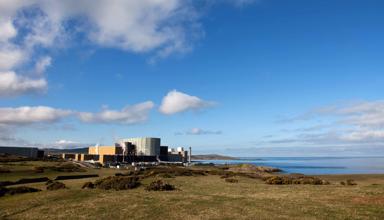With less than a year to go until the 2026 Senedd Election, the Welsh Government is gearing up to set out the last budget of the Sixth Senedd. The Senedd will hold a debate on the Welsh Government's spending priorities for the 2026-27 Budget on 16 July.
In this article we set out what we currently know about the budget and priorities identified by the public and stakeholders through the Finance Committee’s engagement work.
A “business-as-usual” budget
The 2026-27 Budget will be the last time we see a budget from the current Welsh Government. It will cover a financial year falling mostly after the election on 7 May 2026. The Cabinet Secretary for Finance and Welsh Language, Mark Drakeford MS, says he’s planning for a “business-as-usual” budget. He intends to restate the current year’s budget, increased in line with inflation, suggesting it will not focus on new priorities or fresh policies. Although he says he’s “open to the possibility of working with other political parties who believe a more ambitious budget could be agreed”.
The approach the Welsh Government is taking also means the 2026-27 Budget will be for one financial year only.
We’re also not quite done with the 2025-26 Budget. The Senedd recently agreed the First Supplementary Budget 2025-26, and we expect one more supplementary budget in early 2026. Supplementary budgets deal with in-year changes to spending plans. After the election they could serve as a mechanism for a new Welsh Government to amend previously agreed budgets.
The impact of the UK Spending Review
The 2026-27 budget follows on the heels of the UK Government’s Spending Review, published on 11 June. That outlined day-to-day funding for devolved governments until 2028-29, although it’s likely there will be some changes between now and then.
The Cabinet Secretary said the Welsh Government will receive an additional £5bn in revenue and capital over the Spending Review period, including an extra £1bn in 2026-27.
However, Wales Fiscal Analysis say the average growth over the Parliament looks to be “the slowest growth in Welsh Government day-to-day spending outside of the austerity parliaments of the 2010s”. It notes:
… the funding is also frontloaded, with faster growth in spending in 2026-27 followed by leaner budgets in 2027-28 and 2028-29.
Budget timeline
For the past six years, the Welsh Government has not delivered a budget to ‘normal’ timescales, but for 2026-27 it has committed to do so.
The ‘normal’ process, as set out in the budget protocol between the Welsh Government and the Senedd is for a two stage budget. An outline budget provides information on high-level strategic spending and financing, while a detailed budget provides information on proposals for each portfolio.
What we’ve seen in recent years is a set of documents, published around Christmas time. The 2025-26 Draft Budget was published on 10 December. Last year the Welsh Government blamed a lack of clarity around the timing of UK fiscal events for the approach. It was criticised by the Finance Committee who felt the approach was “not conducive to effective parliamentary scrutiny”.
This year we’ll see an outline budget published on 14 October and a detailed budget on 3 November. Our timeline provides further information on the stages of the budget.
What do people want prioritised?
The Finance Committee recently undertook engagement with the public and stakeholders, giving them the opportunity to comment on what they want to see prioritised in the Welsh Government’s budget.
The Committee’s public engagement included:
- A stakeholder event at Bangor University;
- focus groups with organisations and individuals; and
- youth engagement events, including a workshop with Members of the Welsh Youth Parliament and a drop-in session at the Urdd Eisteddfod.
Further drop-in sessions will be held at the Royal Welsh Show in Builth Wells and the National Eisteddfod in Wrexham.
Findings from the stakeholder event
The stakeholder event at Bangor University highlighted several concerns, including:
- the tight funding outlook following the UK Spending Review, which may require a focus on public sector reform and better productivity;
- the Welsh Government’s policy ambitions often being unaligned with budgetary priorities and the additional funding needed to deliver desired policy outcomes;
- funding uncertainties within creative industries, agriculture and Welsh-medium college sector;
- the increase in council tax rises compared to salaries, resulting in those with lower incomes paying disproportionately more;
- the impact of unfunded increases in National Insurance Contributions on the social care and voluntary sector.
Priority issues raised by participants included:
- the long-term impact of cost of living increases, tackling fuel poverty and improving energy efficiency of homes, better planning and investment in housing and homelessness services;
- the increased demand for additional needs in schools (which are facing deficits), a need for reform and better support for vulnerable learners and families;
- Universities facing financial emergency and pressures relating to Welsh language provision, the increasing numbers of students crossing the border to England due to lack of specialist agricultural courses;
- the need for continued investment in apprenticeship schemes and collaboration with further and higher education institutions;
- the importance of preventative funding, with a particular focus on increasing funding for social care services;
- continued investment in Welsh infrastructure aligned with investment in developing an appropriate skills based workforce;
- consistency in how the Welsh Government identifies and applies strategic priorities, and the approach to improve delivery in cross-cutting areas such as promoting green energy, public transport provision and increasing the number of Welsh speakers.
Youth engagement events
Six Members of the Welsh Youth Parliament (WYP) attended a workshop with the Finance Committee on 26 June 2025 to discuss where the Welsh Government should prioritise its spending in 2026-27.
Areas that WYP Members agreed should be prioritised included education, health and social care, climate change and housing. WYP Members expressed mixed views on whether agriculture should be prioritised.
Focus groups
Fifteen focus groups were held, as well as one interview during May and June 2025 with 88 participants across Wales. Findings from these sessions included:
- Health, education and social care were prioritised more frequently by participants, closely followed by housing and homelessness and transport.
- Agriculture and rural affairs and the economy were identified in most of the groups as priorities for funding.
- Most participants preferred to see funding spent more efficiently, rather than identifying areas to receive a reduction.
- Compared to last year, more groups agreed with being taxed more if extra funds were spent on public services, but all expressed concerns about spending transparency and emphasised taxing only those who could afford it.
- Suggestions for innovative funding included a levy on corporate carbon emissions, subsidising healthy food production, modular housing, and investing in behavioural scientists. Many groups also discussed better evaluation of existing schemes and addressing inefficiencies.
What’s next
The Senedd will debate the Welsh Government's spending priorities for the 2026-27 Budget on 16 July, you can watch that live (or after) on Senedd TV.
We’re expecting publication of the Welsh Government’s outline budget on 14 October. Once that’s out, Senedd Committees will start scrutinising the Budget, culminating in a debate on the Draft Budget on 16 December. The debate on the Final Budget is scheduled for 27 January 2026.
Article by Owen Holzinger and Božo Lugonja, Senedd Research, Welsh Parliament






